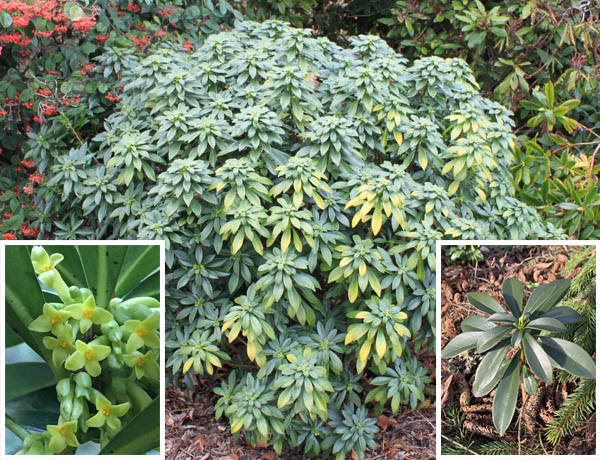Jason A. Ontjes, Program Coordinator
San Juan County Noxious Weed Control Program
Daphne laureola, or spurge laurel, has been on the state’s noxious weed list since 2007.
This evergreen ornamental shrub, which is native to Europe and northern Africa, was once sold by plant nurseries in the Pacific Northwest, but it is now on the state’s “prohibited plants list” (cannot be sold or traded), since it has escaped cultivation and has become an invader of forests and clearings. All parts of the plant (including the sap) are highly toxic to people and pets.
Commonly mistaken for rhododendron, spurge laurel has narrowly oval leaves that are often dark green and shiny, 1 to 5 inches long, and clustered at the branch tips. Its yellow-green flowers appear in winter or early spring, resulting in small, fleshy fruits that are initially green, turning to black by early summer. Rodents and birds are adept at spreading these seed-laden fruits (drupes) to new locations. Spurge laurel is required to be controlled in our county (RCW 17.10, WAC 16-750).
If you find spurge laurel on your property, dig or pull plants out of the ground with gloved hands or with the aid of a weed wrench, getting most of the roots out. If pulling is difficult, plants can be cut to the ground and stumps immediately painted with a suitable herbicide (all herbicides must be used according to label instructions: it’s the law). Do not burn or home-compost spurge laurel remains.
Contact the SJC Noxious Weed Control Program for advice or if you need help identifying spurge laurel (360-376-3499). For more information, visit https://www.nwcb.wa.gov/weeds/spurge-laurel.



